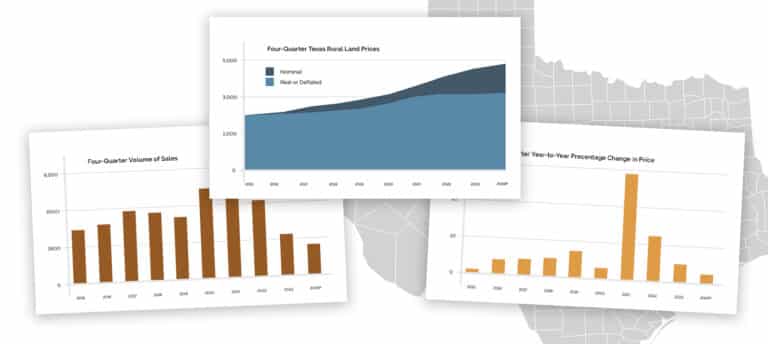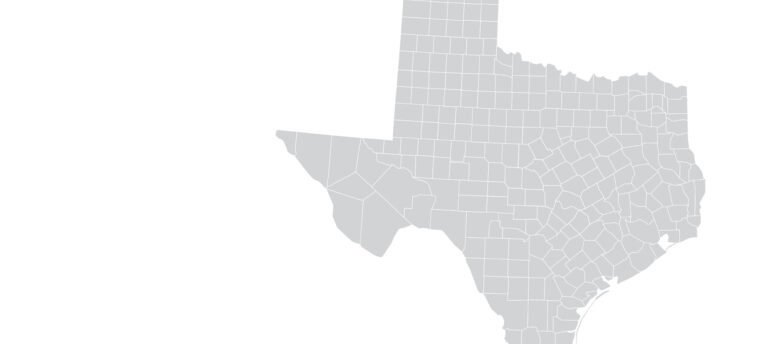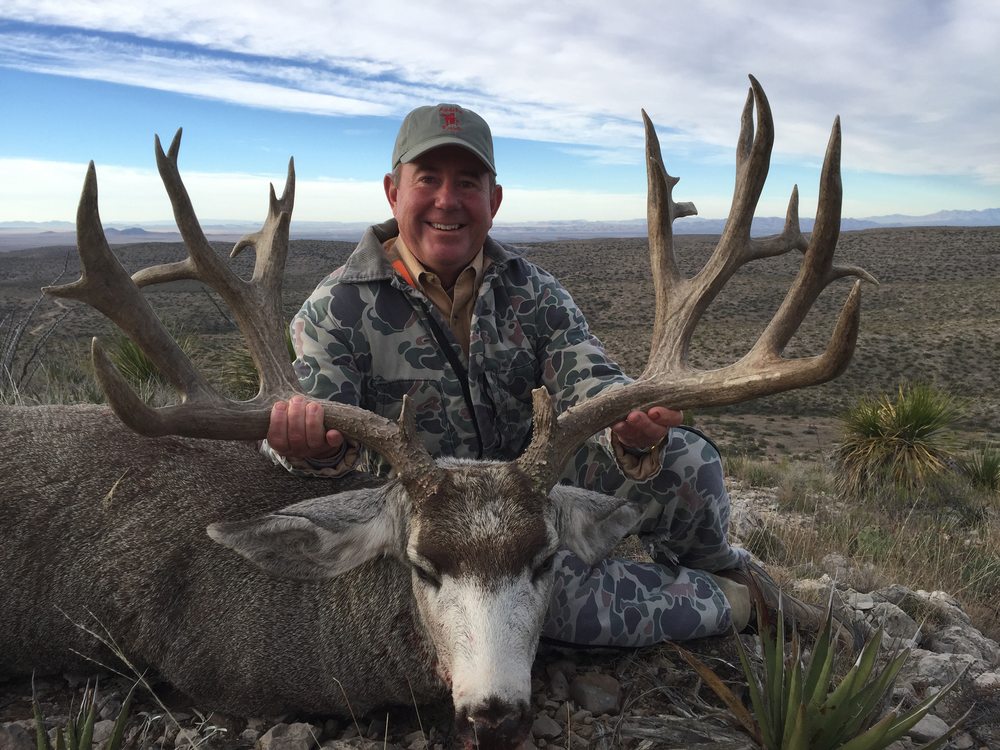
Although the Hughes family has amassed one of the largest inventories of private land in Texas, Dan Allen Hughes Jr. sees immense value in public land.
“The urban public doesn’t understand environmental processes—or their importance—because most don’t have experience on the land,” Hughes, who is immediate past Chairman of the Texas Parks and Wildlife Commission, said “In a private lands state like Texas, the general public’s point of entry to conservation is public lands.”
“If they connect to the outdoors through camping, hiking, fishing or whatever they do, then the ground is laid for a meaningful conversation about natural resources and private stewardship. Who knows? If they connect to the outdoors, it may inspire to them to become landowners themselves.”
This realization prompted Hughes to make the acquisition and care of public land, such as state parks, a priority during his tenure on the TPW Commission, where he served from 2009 to 2015. Texas, which is about 94 percent privately owned, ranks 47th in the nation in the amount of public land available.
“As the population of Texas continues to grow, the demand for places to get outdoors will continue to grow,” Hughes said. “We need people to get outside and connect to nature if we want to conserve it.”
He noted two milestone accomplishments in the arena of public land during his tenure on the TPW Commission. The first was initiating public-private partnerships to acquire public land in Texas.
“In 2010, the Devil’s River Ranch was purchased using a public-private partnership that I believe will become the model for acquiring public land in the future,” Hughes said.
A consortium of individuals contributed more than 90 percent of the purchase price for the 18,000-acre ranch that fronts the pristine Devil’s River near Del Rio and created a state natural area.
The public-private model was successfully used again when the state acquired the Powderhorn Ranch near Port Lavaca. The 17,351-acre ranch, which is one of the largest undisturbed tracts of coastal prairie remaining in Texas, was purchased for $37.7 million, the largest dollar amount ever invested to purchase public land in Texas. More than $34 million dollars came from the National Fish and Wildlife Foundation’s Gulf Environmental Benefit Fund, which was created with money from BP and Transocean in the wake of the Deepwater Horizon oil spill.
Powderhorn Ranch was previously owned by Cumberland & Western Resources, LLC, whose primary investors are conservation-minded citizens who sold the property below its market value to ensure its permanent safekeeping.
In a statement released by TPWD at the transaction’s conclusion, Hughes said: “The acquisition of Powderhorn Ranch will help define the next generation of conservation in Texas….The seller’s commitment to a conservation outcome was instrumental in seeing this through to a successful culmination.”
Once land is acquired by the state, it must be managed and maintained. The second accomplishment benefiting public lands was the passage of HB 158 during the 2015 session of the Texas Legislature. The measure dedicated sporting good sales tax to fund Texas’ state parks.
The tax has been collected since 1993 and was created with the intent of funding state parks, but its original language did not dedicate the funds. This oversight meant that state parks were funded by appropriation, which is based on the whims of the Legislature every two years.
“There are 95 state parks,” Hughes said. “Under the previous system, TPWD would get a new state park budget every two years—and had no earthly idea how much it would be.”
The Legislature tended to use the sporting goods tax money for many other expenditures leaving state parks with a shortfall. The average state park appropriation was $60 million every two years. Today, with full, dedicated funding that figure will average $250 million every two years.
“With the old funding scheme, park officials had two-year plans,” Hughes said. “Now, they have 10-year plans for the parks. Stability and sustainability will make a huge difference because now managers can maintain and upgrade facilities, which make our state parks even more attractive to guests.”
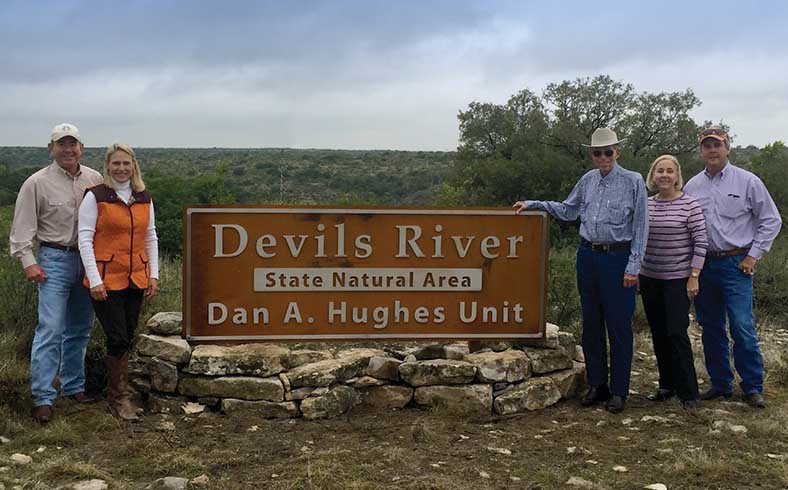
Dan Allen Hughes Jr.’s conservation connection
Hughes can’t remember a time when hunting wasn’t part of his life.
“Before I was old enough to hunt, I tagged along with Dad in the dove fields,” Hughes, who lives in San Antonio, Texas. “For me, hunting is not about the Harvest, it’s about being outdoors with the people I care for.”
In addition, hunting adds economic value to wildlife which encourages people to manage it and hunting offers another introduction point for the outdoors, especially for young people, he said.
The Hughes family has enjoyed success in the oil and gas business. The elder Hughes considered land to be a stellar investment. Beginning in the 1960s, he began acquiring land in Texas and beyond. As a result, the younger Hughes developed his appetite for outdoor pursuits on family land—and in the oil patch.
As a youngster, he would accompany his dad when the elder Hughes, a Texas A&M-educated geologist, would travel to log oil wells. The process could take up to three days. The younger Hughes always made sure to have his rod and reel in the truck.
“The landowners would give me permission to fish in their stock tanks while dad worked,” Hughes said. “He’d come check on me every three or four hours, so I had a lot of controlled freedom.”
Those days weren’t all play for the younger Hughes.
“I was an exceptionally talented gate opener,” Hughes said, recalling one particular field that was accessed through 12 gates.
To move beyond the role of gate opener in the family company, the younger Hughes earned a business degree from Texas A&M University and studied at Texas A&I University. He joined the family firm in 1980 and serves as President.
Hughes and his wife, Peggy, have passed their love of hunting and land along to their three children. An ideal day involves family and friends gathered for outdoor fellowship on the couple’s Apache Ranch located near Van Horn, Texas.
“On my perfect day, I’d be up early hunting for mule deer and then come mid-morning, I’d change to quail,” Hughes said. “After a break for lunch and a quick nap, I’d head back out to hunt quail until it was late enough to start hunting for mule deer again.”
While the couple understands the landscape of South Texas where they were reared, the wide, open spaces and big skies of far West Texas have captured their hearts and imagination. The original ranch was purchased in 1972, since then Hughes and Peggy have purchased five neighboring ranches to expand their holdings and management options.
Operating ranches across Texas requires different management techniques, but the guiding management philosophy is the same.
“I want to leave the land and the wildlife better than I found it,” Hughes said.
To achieve that the family strives for balance between wildlife and livestock keeping a close eye on carrying capacity. They manage with the specter of drought looming, so they are more likely to understock in good times instead of overstock in dry years. Regardless of the ranch’s location, the family concentrates on increasing water availability and improving the native range.
“Peggy and I also ranch in Medina, Frio, and Wilson counties,” Hughes said. “We’ve done a lot of land clearing and ‘motting’ to give the native grass and forbs a chance to come back in. We don’t reseed natives, but optimize the land so they can spread. We work to prevent non-natives from establishing themselves.”
The benefits have expressed themselves in an improving whitetail herd and an increasing quail population.
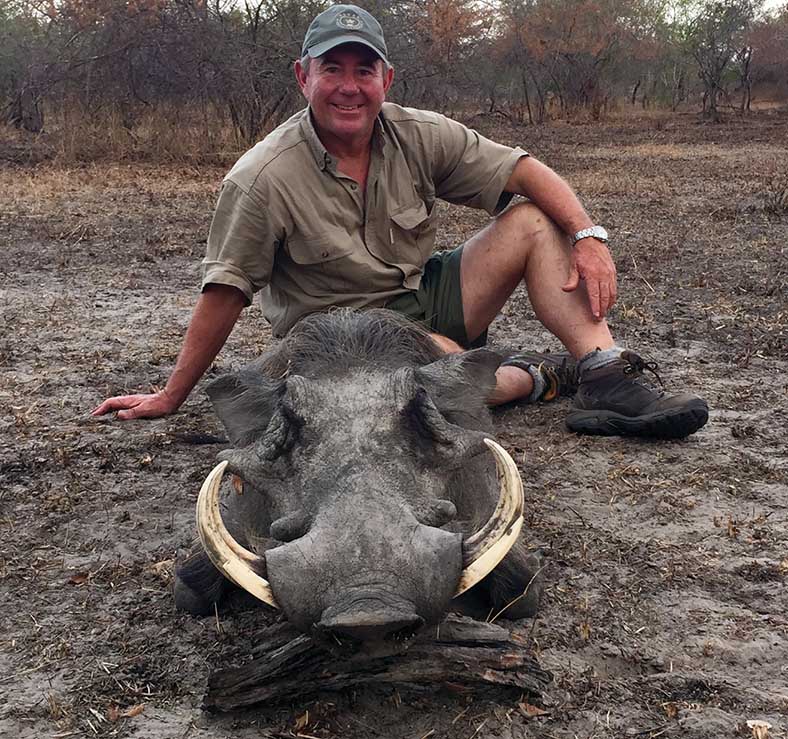
Dan Allen Hughes Jr.’s capitol connection
As TPW Commission Chairman, Hughes has been privy to a lot of landowners expressing their views. During his tenure, the TPW Commission took the input of landowners very seriously and many decisions were driven by public opinion and participation.
“Anybody can come and address the Commission on topics on the Agenda,” Hughes said. “If you’re proactive and ask the right questions, you can get things done.”
With that said, it is also helpful to be aligned with a respected organization, he said. In his experience, TWA with its membership of land owners, land managers and outdoorsmen fits the bill.
“TWA has a lot of clout and respect in Texas,” Hughes, who has been a TWA member since April, 1986 and served as a director, said. “At TPWD, the organization is considered a real partner in conservation.”
Hughes is an active supporter of TWA because its mission supports him—and all of the people like him—by protecting landowners’ rights to manage their land.
“I’m a conservationist,” Hughes said. “I think wildlife is our heritage. It’s what makes Texas Texas.”
